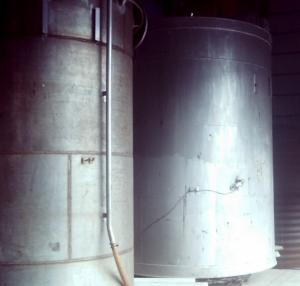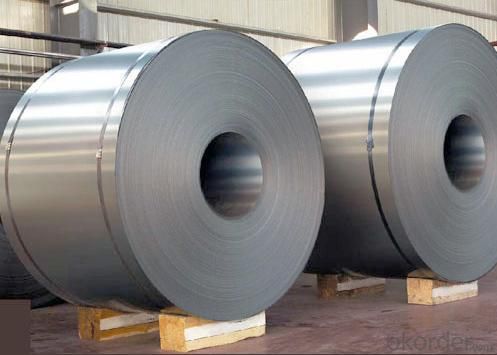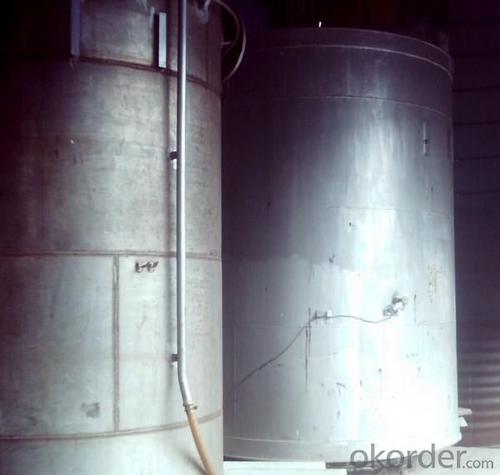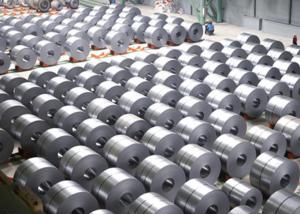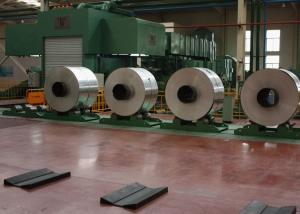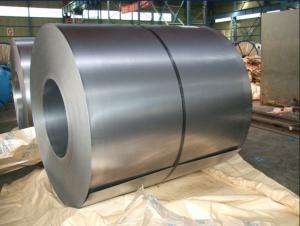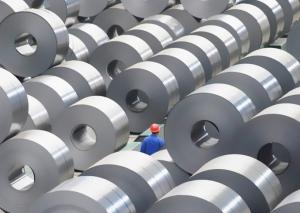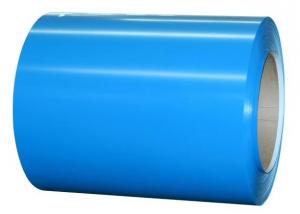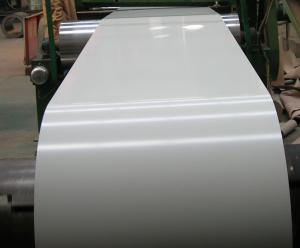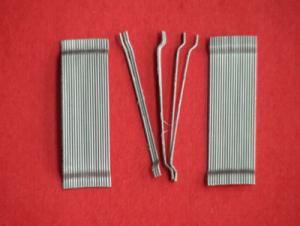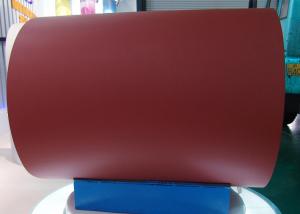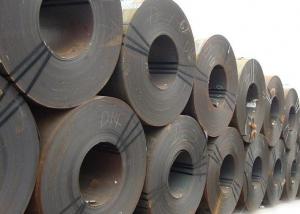High Quality Bright Anneal Cold Rolled Steel-JISG3141
- Loading Port:
- China Main Port
- Payment Terms:
- TT or LC
- Min Order Qty:
- 25M/T m.t.
- Supply Capability:
- 50000 Metric Tons Per Month m.t./month
OKorder Service Pledge
OKorder Financial Service
You Might Also Like
Specifications Of High Quality Bright Anneal Cold Rolled Steel-JISG3141
|
COLD ROLLED STEEL | |
|
Thickness |
0.08mm-4.00mm |
|
Width |
30mm-2000mm |
|
Sheets Length |
+0mm-6000mm |
|
Coil inner Diameter |
508mm or 610mm |
|
Surface Treatment |
●Matt Finish/Bright Finish ●Oiling/Dry |
|
Annealing Methods |
●Bright Anneal/Black Anneal |
|
Coil Weight |
1mt-25mt |
Standard and Grade Of High Quality Bright Anneal Cold Rolled Steel-JISG3141
|
|
JIS G3141-2005 |
BSEN10130-2006 |
ASTM A1008-12a |
|
Commercial Quality |
SPCC |
DC01 |
CS Types A/B/C |
|
Drawing Quality |
SPCD |
DC03 |
DS Types A/B |
|
Deep Drawing Quality |
SPCE SPCF(non aging) |
DC04 |
DDS |
|
Extra Deep Drawing Quality |
SPCG(non aging) |
DC05/06 |
EDDS |
Definition Of High Quality Bright Anneal Cold Rolled Steel-JISG3141
Cold rolling means that hot rolled steel coil is rolled below recrystallization temperature after pickling, and its finished product is full hard coil. After annealing process for full hard coil, the finished product is cold rolled production. The thin gauge cold rolled steel sheet and strip steel have advantages of low surface roughness, high dimension accuracy and good mechanical properties etc, and which have been widely used in auto manufacturing, home appliance, architecture, aviation, precision instrument, hardware and enameling industry etc.
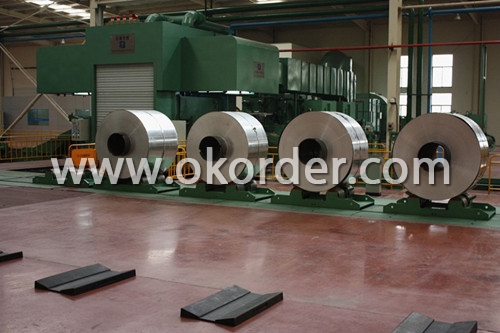
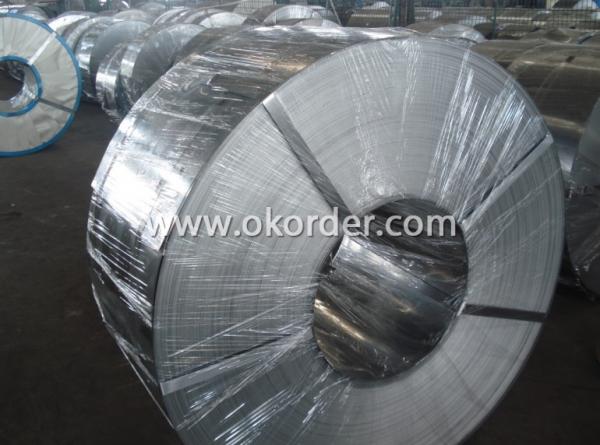
Application Of High Quality Bright Anneal Cold Rolled Steel-JISG3141
It is the based material for galvanized steel coil and pre-painted galvanized steel coil. It is widely used in light industry for making tank, furniture, pipe, refrigerators, washers, freezer plate, air conditioner, micro-wave oven, water heater, soot-such machine, electric rice cooker, electric roaster oven, dryers and automobile etc. In the other application industries, it’s mainly used for enameling, office furniture, burglarproof door, electronic element, fastener battery, hardware, automotive fitting etc.
Packaging & Delivery Of High Quality Bright Anneal Cold Rolled Steel-JISG3141
The packing of coils consists of anti-damp paper, PVC film, hardboard paper, steel box, strapped with steel strips, fitted with locks and edge protectors and guarantees the optimal condition of the delivered goods. Each coil can be additionally fitted with wooden/steel skids(eye to the side) or wooden pallets(eye to the sky). Eye to sky package: Anti-damp paper inside full wrapped with plastic film, iron sheet outside on wooden pallet in 20 feet container with 25mt.
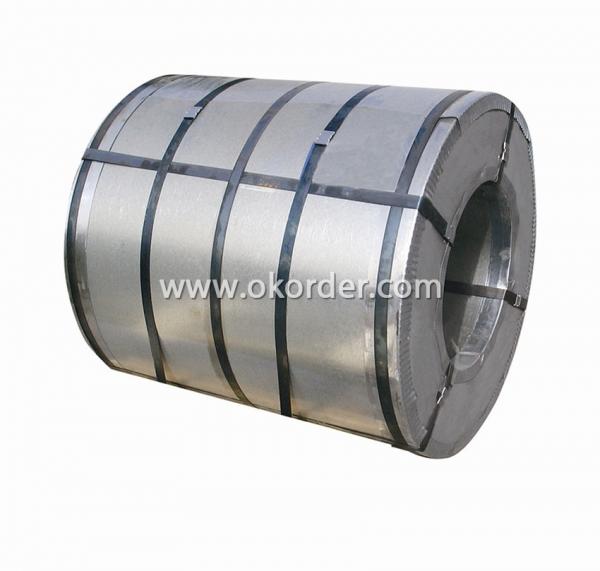
- Q: How is steel wire rope manufactured?
- Steel wire rope is manufactured through a process called wire drawing. It starts with raw steel wire being drawn through a series of dies to reduce its diameter and increase its strength. This wire is then twisted together to form strands, which are further twisted around a core to create the final rope. These ropes undergo heat treatment and various tests to ensure their quality and durability.
- Q: How is steel used in the production of tools and machinery?
- Steel is widely used in the production of tools and machinery due to its exceptional strength, durability, and versatility. It is used to create various components, such as blades, gears, shafts, and frames, which require high levels of hardness and resistance to wear and tear. Steel's ability to be heat-treated and shaped into different forms makes it suitable for a wide range of applications in the manufacturing industry, ensuring the production of robust and reliable tools and machinery.
- Q: What are the different types of steel products used in the manufacturing of camping equipment?
- There are several types of steel products used in the manufacturing of camping equipment. Some common ones include stainless steel for durable and rust-resistant cooking utensils and camping stoves, carbon steel for sturdy and sharp camping knives and machetes, and galvanized steel for sturdy tent poles and camping gear hooks. These steel products are chosen for their strength, durability, and resistance to corrosion, making them ideal for outdoor use in camping equipment.
- Q: How is steel pipe coated for underground installations?
- Steel pipe is typically coated for underground installations through a process called external coating. This involves applying a layer of protective coating, such as fusion-bonded epoxy (FBE), to the exterior surface of the steel pipe. This coating acts as a barrier, preventing corrosion and ensuring longevity of the pipe in underground environments. Additionally, a layer of polyethylene tape or a shrink sleeve may be applied over the FBE coating for added protection against mechanical damage and moisture intrusion.
- Q: How are steel tubes used in the manufacturing of furniture?
- Steel tubes are commonly used in the manufacturing of furniture to provide structural support and strength to various components. They are often used in the construction of chair frames, table legs, and other furniture pieces that require durability and stability. The versatility and robustness of steel tubes make them an ideal choice for creating sleek and modern designs while ensuring longevity and reliability in furniture manufacturing.
- Q: How is steel used in the production of HVAC systems?
- Steel is commonly used in the production of HVAC systems due to its strength, durability, and heat-resistant properties. It is used for manufacturing the framework, ductwork, and various components of the system, ensuring stability, longevity, and efficient functioning.
- Q: How do steel products withstand extreme temperatures and weather conditions?
- Steel products are able to withstand extreme temperatures and weather conditions due to their inherent strength and durability. Steel has a high melting point, making it resistant to heat, and its composition allows it to maintain its structural integrity under severe weather conditions such as strong winds, heavy snow, or intense rain. Additionally, steel can be coated with protective layers such as galvanization or paint, which further enhances its resistance to corrosion and rust.
- Q: What are the different types of steel bridges and structures available?
- There are several types of steel bridges and structures available, including truss bridges, arch bridges, cable-stayed bridges, suspension bridges, and beam bridges. Each type has its own unique design and construction method, making them suitable for various spans and load requirements.
- Q: How are steel products used in the construction of high-rise buildings?
- Steel products are commonly used in the construction of high-rise buildings due to their strength, durability, and versatility. They are used for structural components such as beams, columns, and frames, providing the necessary support and stability to withstand the weight and forces exerted on the building. Additionally, steel is often used for cladding, roofing, and façades, offering aesthetic appeal and protection against weather elements. Its flexibility allows for easy customization and modifications, making it an ideal material for constructing tall buildings efficiently and safely.
- Q: What are the different types of steel products used in the manufacturing of packaging materials?
- There are several types of steel products used in the manufacturing of packaging materials, including tinplate, tin-free steel, and stainless steel. Tinplate, made by coating thin steel sheets with a layer of tin, is commonly used for food and beverage cans. Tin-free steel, on the other hand, is similar to tinplate but lacks the tin coating, making it suitable for non-food packaging applications. Lastly, stainless steel, known for its corrosion resistance and durability, is often used for packaging materials that require high strength and hygiene standards, such as medical supplies or industrial products.
1. Manufacturer Overview
| Location | Hebei, China |
| Year Established | 1999 |
| Annual Output Value | |
| Main Markets | Africa Eastern Europe Southeast Asia Eastern Europe;North America |
| Company Certifications | ISO9001 GBT28001 ISO14001 |
2. Manufacturer Certificates
| a) Certification Name | |
| Range | |
| Reference | |
| Validity Period |
3. Manufacturer Capability
| a) Trade Capacity | |
| Nearest Port | Tianjin; Qingdao |
| Export Percentage | 41% |
| No.of Employees in Trade Department | 20 People |
| Language Spoken: | English; Chinese |
| b) Factory Information | |
| Factory Size: | 198000square meters |
| No. of Production Lines | 5 |
| Contract Manufacturing | OEM Service Offered |
| Product Price Range | Average |
Send your message to us
High Quality Bright Anneal Cold Rolled Steel-JISG3141
- Loading Port:
- China Main Port
- Payment Terms:
- TT or LC
- Min Order Qty:
- 25M/T m.t.
- Supply Capability:
- 50000 Metric Tons Per Month m.t./month
OKorder Service Pledge
OKorder Financial Service
Similar products
Hot products
Hot Searches
Related keywords
